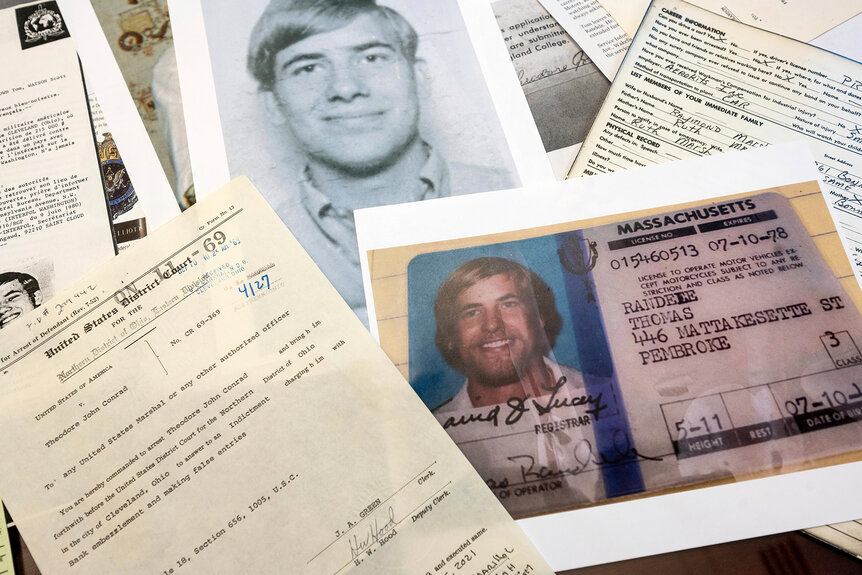Create a free profile to get unlimited access to exclusive videos, breaking news, sweepstakes, and more!
After More Than 50 Years, Authorities Identify One Of The Country's Most Wanted Men
Thomas Randele died in May a wanted man. In 1969, he robbed the Cleveland bank where worked as a teller.

Thomas Randele died in May with a big secret. He was actually Theodore John Conrad, a notorious fugitive, wanted for robbing Society National Bank in Cleveland more than 50 years ago in 1969.
Authorities had spent dozens of years searching for Conrad never realizing he was living in the Boston area, a successful car dealer with a wife and daughter and friends who adored him including a FBI agent, according to Associated Press.
“He was just a gentle soul, you know, very polite, very well spoken,” one of his friends, Jerry Healy told AP.
Investigators pursued leads across the country, traveling to Washington, D.C., California, Oregon, Texas, and Hawaii.
Among those searching was a father and son who both worked for the U.S. Marshals Service.
“This is a case I know all too well. My father, John K. Elliott, was a dedicated career Deputy United States Marshal in Cleveland from 1969 until his retirement in 1990,” U.S. Marshal Peter Elliot said in November. “My father took an interest in this case early because Conrad lived and worked near us in the late 1960s. My father never stopped searching for Conrad and always wanted closure up until his death in 2020.”
Several months after Randele’s death, U.S. Marshals from Cleveland were able to match documents that Conrad signed in the 1960s with documents that Randele completed, including a bankruptcy filed in federal court in Boston in 2014 to confirm his identity.
Randele’s family told investigators that he made a deathbed confession as he was dying from lung cancer, according to AP.
On Friday, July 11, 1969, Conrad was a bank teller at Society National Bank. At the end of the day, he left the job with $215,000 (valued at more than $1.7 million today) in a paper bag.
It was one of the biggest bank robberies in Cleveland history, according to the U.S. Marshals Service.
It wasn’t until the following Monday morning that the bank realized that the money was missing along with the then-20-year-old bank teller.
In 1970, Conrad became Thomas Randele even applying for a social security number, according to AP.
He cut out everyone from his previous life, ending all communications with family. Some simply assumed he was dead.
Investigators believe that Conrad’s fixation with the 1968 movie, “The Thomas Crown Affair,” in which Steve McQueen starred as a millionaire businessman who pulls off a bank heist, led to the robbery.
Conrad saw it more than six times and bragged to friends about how it easy would be rob the bank and told he planned to do it, according to U.S. Marshals.
“It wasn’t about the money. He always wanted to impress,” Russell Metcalf, a friend from high school told AP.
Investigators are still trying to figure out what happened to the money. One possibility is that it was lost years ago to bad investments, according to AP.
Now friends of Randele’s are trying to reconcile what they now know about their friend’s criminal past.
Some said that it all makes sense now. He never spoke about family or where he grew up.
But others said it simply doesn’t match the man they knew.
“The only way it makes sense is that at that age he was just a kid, and it was a challenge kind of thing,” friend Matt Kaplan told AP. “If he would have told us way back when, I don’t think we would have believed him because he wasn’t that kind of guy. The man was different than the kid.”
Elliot is just glad to close a case that haunted his father.
“I hope my father is resting a little easier today knowing his investigation and his United States Marshals Service brought closure to this decades-long mystery. Everything in real life doesn’t always end like in the movies,” he said.



























